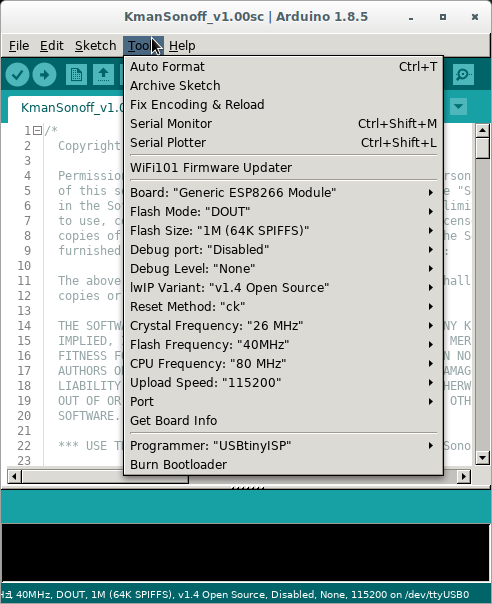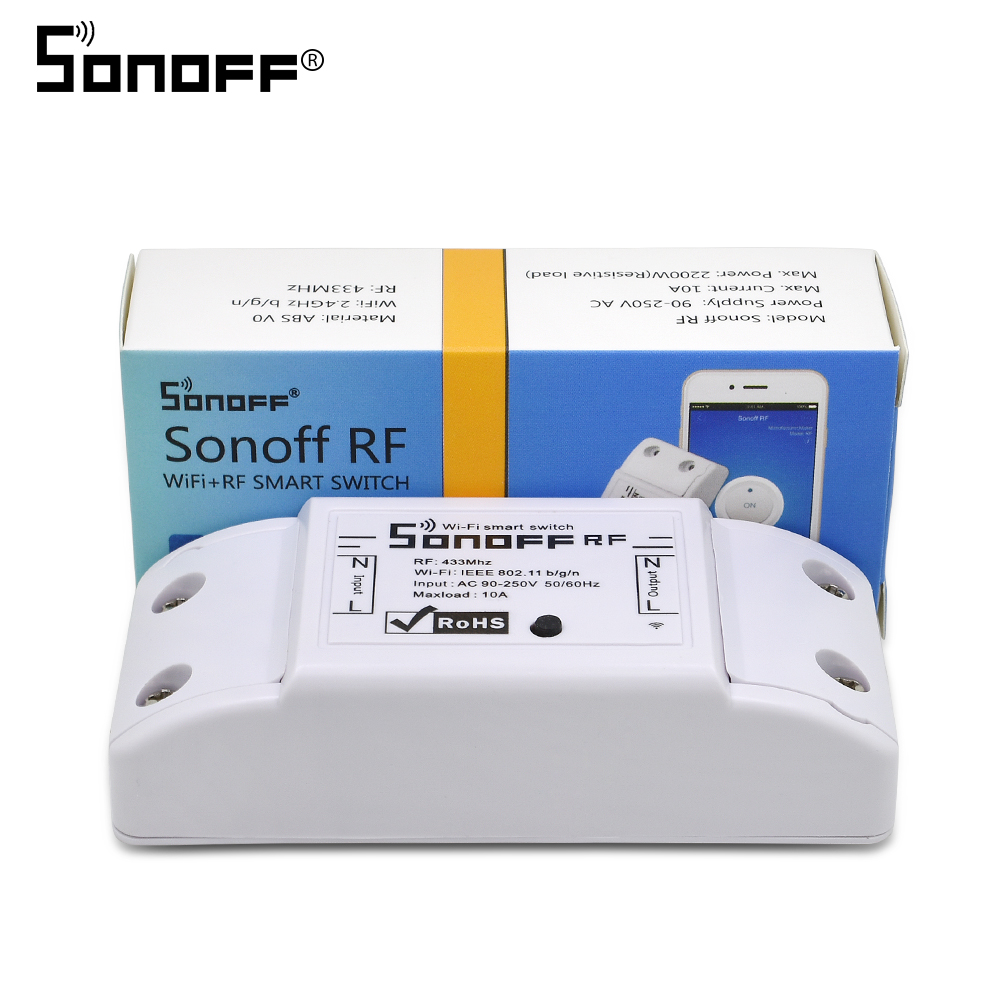💬 Sonoff relay using MySensors ESP8266 wifi or mqtt gateway
-
I will just leave that here for other like me that wondered for hours why they could flash their sonoff, but it did not react once plugged to the main.
You need to setup your arduino with DOUT as flash mode.
Other mode will flash without errors, but the device will appear bricked.
My settings where:

-
I will just leave that here for other like me that wondered for hours why they could flash their sonoff, but it did not react once plugged to the main.
You need to setup your arduino with DOUT as flash mode.
Other mode will flash without errors, but the device will appear bricked.
My settings where:

-
Hello!
Maybe someone here has a code for Sonoff RF with support 433 MHz receiver?

In my opinion, paired with a wireless wall switch, this will turn out to be quite a cheap and convenient solution for lighting control.


The cost of a set of relay and switch about 10 dollars.
-
Did you try this?
https://github.com/arendst/Sonoff-Tasmota -
Did you try this?
https://github.com/arendst/Sonoff-Tasmota -
Mqtt Is really easy to use in fact. Just follow a tutorial to install mosquitto and you're ready to go.
It also depends on your controller of course -
@electrik Now I just read the description of this firmware. To do this, I need to understand how to work with MQTT. I hoped to find a simpler solution. Ethernet gateway is much easier to connect.:man-shrugging:
-
@vladimir what controller are you using? Most home automation controllers like domoticz and Home Assistant have a quick integration with Tasmota or EspEasy
